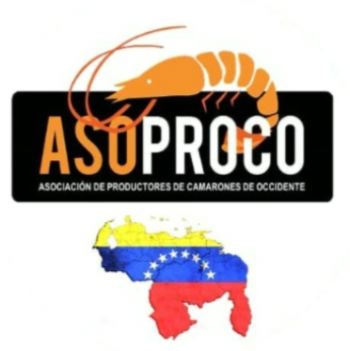
Western Shrimp Producers Association (Asoproco)
Shrimp is the main non-traditional export aquaculture species that Venezuela has and the largest production is in the west of the country, specifically in the state of Zulia and northwest of Falcón, with the participation of private companies.
Last year, 39,110 tons of shrimp were exported, of which Zulia contributed 33,000, according to figures provided by the Minister of Fisheries and Aquaculture, Juan Carlos Loyo, in a television interview in March.
The State of Zulia(red) in Venezuela
"The goal is to go from 40,000 tons this year to 100,000 next year and in 2029 reach 600,000 tons to occupy second or third place in Latin America as a producing-exporting country and to be among the top 10 in the world, where Ecuador is the leader" , added the president of the Western Shrimp Producers Association (Asoproco), Fernando Villamizar.
The commercial cultivation of shrimp in the country began at the end of the 90s and with the passage of time they have managed to open international markets and currently Venezuela has marketing agreements with 18 countries, among which the following stand out: The Netherlands, the United States , France, Spain and China. "Markets in Spain, France, Belgium, the Netherlands, Russia, Turkey and China have been entered," added Minister Loyo.
Production of the species
The president of Asoproco explained that shrimp farming takes place along the coastline (estuaries, coastal lagoons, lakes, or bays) with a good source of water supply.
Its production cycle is approximately four months, depending on technological advances for the hatchery in this area, whose consumption is beneficial for health due to its high protein content and is an important source of vitamins and minerals.
100% of the larvae are produced in Venezuela, which were previously acquired in laboratories in Cartagena (Colombia), while the plants installed in the country supply the balanced feed, which was imported from Peru, Colombia and Ecuador and progress is being made in substitution of imports.
Villamizar specified that before there were two harvests in a year, however, currently it is between six and eight per year. "The animal's diet was improved, which has helped the genetics," he added.
Likewise, he stressed that the state of Zulia has demonstrated exceptional conditions for its cultivation, as it has 365 days a year of ideal temperatures.
He explained that the markets that have been conquered and restored have had the support of national government institutions.
He indicated that some weaknesses in terms of marketing-export must be overcome. “Last year no ships arrived (for three months) and the containers remained, which implied great losses,” he commented.
Regional companies
In Zulia state there are more than 18 shrimp plants in operation, one of them is Confremarca, classified as the most modern and largest in Latin America.
It was founded in 1986 by a group of shareholders who decided to invest and motivate other businessmen to promote this business. It is located in the El Bajo sector of the San Francisco municipality.
t has its own larvae laboratory, two farms in an area of 850 hectares with 240 pools for the organic cultivation of the Litopenaeus vannamei shrimp, which is harvested throughout the year. They process 200 tons daily and have a storage capacity of 1,800 tons at 25 °C.
They also have another farm in the Falcón state (Tocopero) with 63 pools made up of 550 ha of water mirrors, according to statistics published on their website.
The regional department of the Ministry of Aquaculture and Fisheries with its affiliated entities supervise the sanitary conditions in shrimp processing, which allows guaranteeing the quality of the product for its commercialization.
These companies contribute to the generation of jobs, being also an engine that drives the economy of Zulia and the country.
Source: UltimaNoticias

